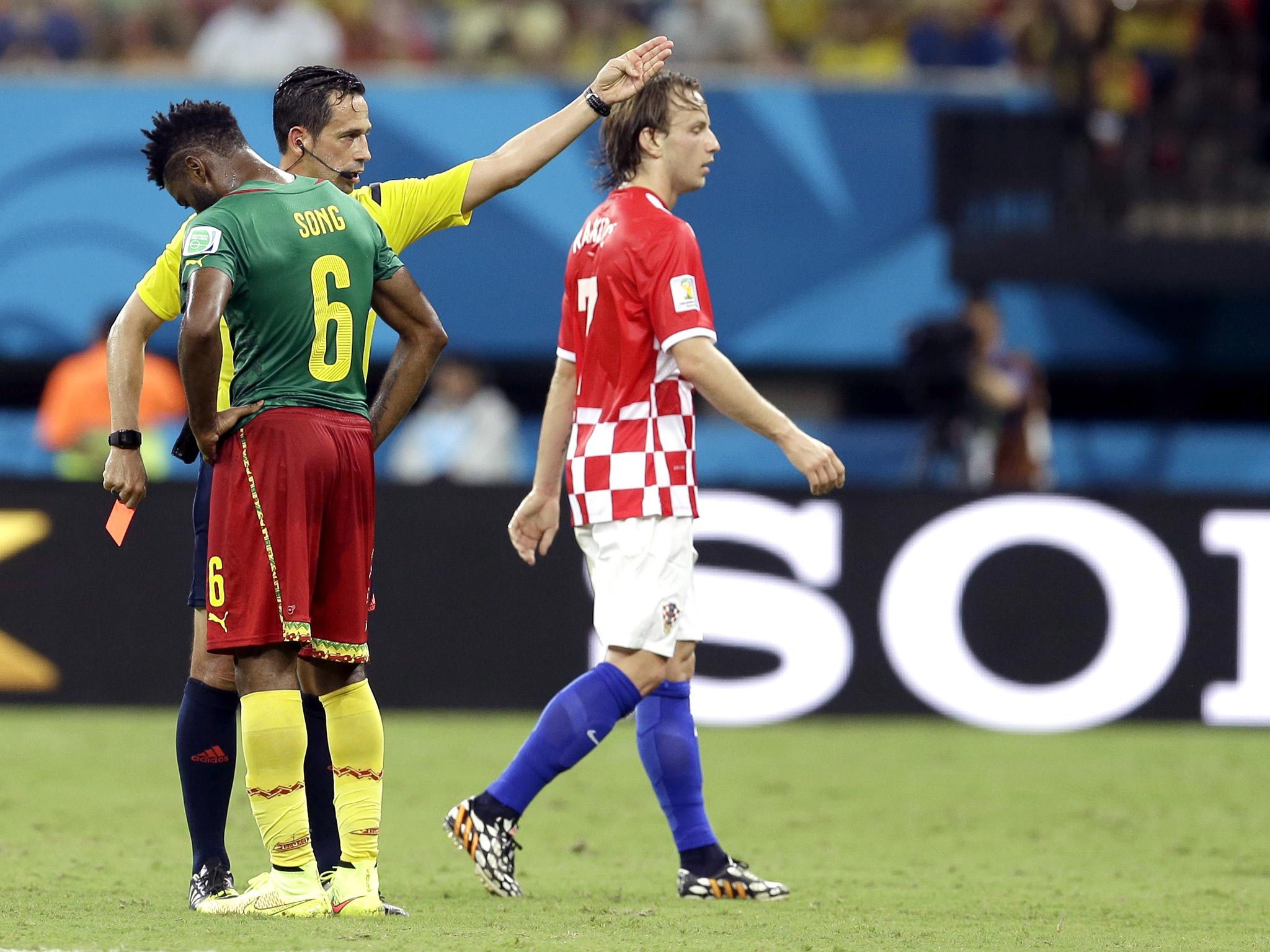World Cup 2014: Where did it all go wrong for shambolic Cameroon?
Corruption fears and high turnover of coaches are factors in more World Cup woe

Your support helps us to tell the story
From reproductive rights to climate change to Big Tech, The Independent is on the ground when the story is developing. Whether it's investigating the financials of Elon Musk's pro-Trump PAC or producing our latest documentary, 'The A Word', which shines a light on the American women fighting for reproductive rights, we know how important it is to parse out the facts from the messaging.
At such a critical moment in US history, we need reporters on the ground. Your donation allows us to keep sending journalists to speak to both sides of the story.
The Independent is trusted by Americans across the entire political spectrum. And unlike many other quality news outlets, we choose not to lock Americans out of our reporting and analysis with paywalls. We believe quality journalism should be available to everyone, paid for by those who can afford it.
Your support makes all the difference.Try a word-association exercise. Cameroon + World Cup = ? The answer used to be Roger Milla, dancing around the corner flag. Now it is Benoît Assou-Ekotto pushing his head into the brow of a team-mate.
It would be erroneous to state Cameroonian football has become the basketcase of African football; unlike many other countries, notably South Africa, they do at least usually qualify for the finals. The problem is what happens when they get there, for Cameroon is a story of squandered potential.
In 1982, when the Indomitable Lions made their World Cup debut, they were unbeaten and only edged out at the group stage by eventual winners Italy on goals scored. Eight years on they were back. After stunning holders Argentina in the opening game they progressed to the last eight, where they were eight minutes from dispatching England.
Cameroon looked the nation most likely to make Africa’s breakthrough. It was a false dawn. This is their fifth subsequent appearance at the finals, during which they have played 14 matches. They have won one and lost nine. Already knocked out of this competition, they play Brazil tonight in Brasilia with only pride to salvage.
There appear to be two fundamental problems with football in Cameroon: organisational quality and probity, and player development.
The latter might not be thought such an issue. Samuel Eto’o and Alex Song have played for Europe’s biggest clubs, Stéphane M’Bia was a key figure in Seville’s Europa League triumph, and the majority of the squad play in Europe’s big five leagues.
However Eto’o, a tactically astute player with mental gifts to match his renowned physique, is the exception when it comes to exports from Cameroon – indeed, most sub-Saharan countries. The archetype expected by European clubs – and therefore the one many African academies focus on, for they are usually private enterprises – places an accent on power, not guile. Think Didier Drogba, Michael Essien, Taribo West. The likes of Stephen Pienaar and Jay-Jay Okocha are rare. Cameroon’s midfield in the 4-0 defeat to Croatia – Alex Song, Joël Matip and Eyong Enoh – was very functional.
Then there is the chaotic, often allegedly corrupt, administration. Again, this is not unique to Cameroon, but the West African nation does seem to have suffered more than most. They have had 22 coaches in 24 years. One reason coaches appear to quit is interference in team selection from government or Cameroon FA (Fecafoot) officials, or because wages are paid late, or not at all. The players suffer similarly. The airport stand-off, with Cameroon arriving late to these finals due to a row over bonuses, echoed similar disputes in 1994 and 2002.
Such rows, and the state of the nation’s football infrastructure, makes observers wonder where the cash earned from their World Cup appearances and related sponsorship has gone.
There are suspicions. A 2010 report by the Forum for African Investigative Reporters claimed millions of pounds earmarked for stadium redevelopment had disappeared and accused Fecafoot and government officials of corruption. Issa Hayatou, president of Fecafoot and of the regional federation since the late 1980s, has several times been accused of taking bribes in relation to the vote-rigging of World Cup bids. He has always strenuously denied all allegations and remains on Fifa’s executive committee.
What is clear is that graft is an issue in a country ranked 144th in the world by Transparency International’s corruption index. That is not the only socio-economic factor hampering football development. The population, at an estimated 22.5m, is barely an eighth of Nigeria’s, and it is poor, its GDP ranked at 95th-100th in the world.
Against this backdrop, perhaps the team’s results are understandable. Indeed, there is an argument that Cameroon now pulls it weight at international level. It is just that it used to over-achieve.
Join our commenting forum
Join thought-provoking conversations, follow other Independent readers and see their replies
Comments